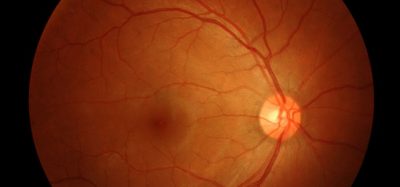NICE concludes decision for two Alzheimer’s treatments
Posted: 19 June 2025 | Catherine Eckford (European Pharmaceutical Review) | No comments yet
The committee’s final draft guidance cited high-cost as a key reason for its negative opinion of the Alzheimer’s drugs, developed by Biogen and Eisai.


The National Institute for Health and Care Excellence (NICE) has recommended against approving Leqembi (lecanemab) and Kisunla (donanemab) to treat mild cognitive impairment or mild dementia caused by Alzheimer’s, in its final draft guidance.
“We have done everything we possibly can to try and achieve a positive outcome in our assessments of these treatments, including providing an additional opportunity for new evidence to be submitted,” stated Helen Knight, Director of medicines evaluation at NICE.
In May, the appraisal committee evaluated new information provided as part of its additional consultation on negative draft recommendations for the amyloid-beta (Aβ) monoclonal antibody medicines.
However, the overall costs of purchasing and administering the drugs remain high and the benefits too small, according to the committee. This is compounded by “the lack of long-term evidence of effectiveness, together with the substantial resources the NHS would need to commit to the treatments means if they were approved they could displace other essential treatments and services that deliver significant benefits to patients,” continued Knight.
This decision follows the European Commission’s decision in April to approve lecanemab for eligible patients with Alzheimer’s.
“Well-conducted clinical trials demonstrated that the actual size of benefits experienced by [Alzheimer’s] patients were too small to be noticeable, treatment carries risks of side-effects, and the annual cost of the drugs and safety monitoring required would have been close to the cost of a nurse’s salary for each treated patient,” Professor Rob Howard, Professor of Old Age Psychiatry, UCL remarked.
“With over 30 Alzheimer’s drugs now in late-stage trials globally, momentum is building – and more will enter regulatory systems in the years ahead”
However, Hilary Evans-Newton, Chief Executive at Alzheimer’s Research UK, cautioned that “NICE’s decision should ring alarm bells for a government that, only a year ago, pledged to make the UK a global leader in dementia treatments. While these drugs are not a cure and do come with potentially serious side effects, they represent an important first step in changing the course of Alzheimer’s.
“With over 30 Alzheimer’s drugs now in late-stage trials globally, momentum is building – and more will enter regulatory systems in the years ahead… Government must work with NICE, the NHS and industry to pilot licensed drugs, gather more data, and prepare the health system for what’s ahead.”
Considering NICE’s latest decision, “it’s worth remembering that [clinical] trials of intensive blood pressure control showed a benefit similar to that seen in the amyloid antibody trials,” shared Professor Atticus Hainsworth, Professor of Cerebrovascular Disease, City St George’s, University of London.
Registered stakeholders can appeal against the final draft recommendations until 8 July 2025.
Related topics
Antibodies, Big Pharma, Biologics, Biopharmaceuticals, Clinical Development, Clinical Trials, Data Analysis, Drug Development, Drug Markets, Drug Safety, Industry Insight, Proteins, Regulation & Legislation, Research & Development (R&D), Therapeutics
Related organisations
Biogen, Eisai, National Institute for Health and Care Excellence (NICE)
Related people
Helen Knight, Hilary Evans-Newton, Professor Atticus Hainsworth, Professor Rob Howard









